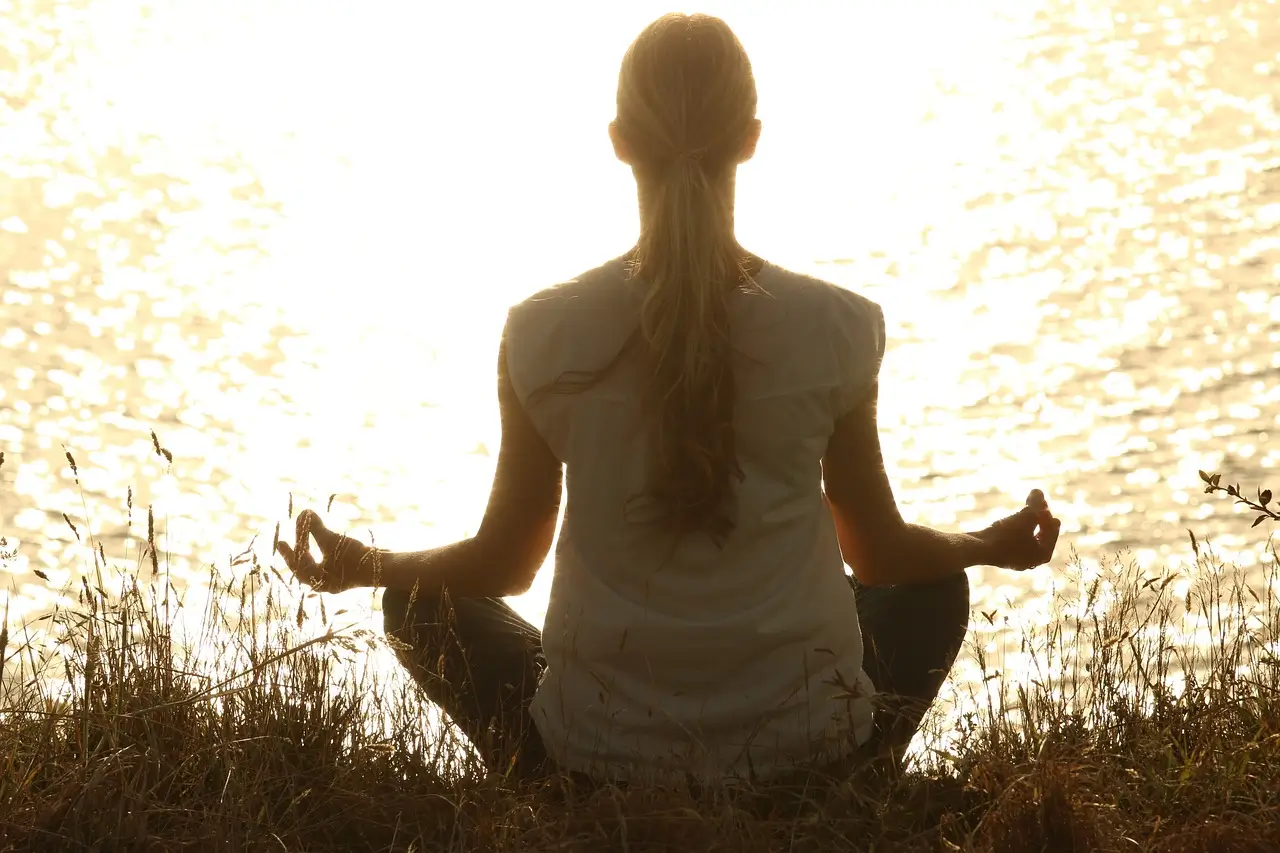Feeling overwhelmed? Meditation apps can be your gateway to inner peace. Discover the top apps, their features, and how to choose the perfect one for YOU! AREGB
Find Your Zen: The Ultimate Guide to Meditation Apps
In today’s fast-paced world, feeling stressed and overwhelmed is all too common. Between work deadlines, social media demands, and the constant buzz of notifications, finding moments of peace can feel like a distant dream.
But what if there was a readily available tool that could help you cultivate inner calm and reduce stress, all within a few minutes a day? Enter meditation apps – powerful resources that can guide you on your journey to mindfulness and well-being.
This ultimate guide explores the world of meditation apps, providing you with everything you need to know to find your perfect zen companion.
Why Use a Meditation App?
While traditional meditation practices involve attending classes or retreats, meditation apps offer a convenient and accessible alternative. Here are some key benefits:
- Guided Instruction: Especially for beginners, structured guidance can be invaluable. Apps offer a variety of guided meditations tailored to different needs and experience levels.
- Variety & Choice: Gone are the days of one-size-fits-all meditation. Apps offer a vast library of meditations focusing on stress reduction, sleep improvement, focus enhancement, and more.
- Flexibility & Convenience: Practice meditation anytime, anywhere. Fit short sessions into your busy schedule or dedicate longer periods for deeper exploration.
- Tracking Progress: Many apps track your meditation habits, allowing you to monitor your progress and stay motivated.
Top Meditation Apps
With so many meditation apps available, choosing the right one can be overwhelming. Let’s explore some of the most popular options, highlighting their unique features:
- Headspace: A user-friendly app ideal for beginners. Headspace offers a structured approach with bite-sized introductory courses and a friendly animated guide. (Check out our internal blog post “Headspace: Your First Step to Meditation” for a deeper dive)
- Calm: Known for its beautifully calming interface and soothing soundscapes, Calm goes beyond meditation. Explore sleep stories narrated by celebrities, calming music, and breathing exercises.
- Insight Timer: This free app offers a vast library of meditations from a global community of teachers. Perfect for experienced meditators seeking variety and specific techniques.
- Simple Habit: This app focuses on short, 5-minute meditations perfect for busy schedules. Simple Habit categorizes meditations by desired outcome, making it easy to find what you need in the moment.
- Aura: Known for its personalized approach, Aura tailors meditation sessions based on your mood and daily goals. Track your progress and receive personalized insights to optimize your practice.
Choosing the Right Meditation App for You
Consider these factors when selecting your ideal meditation app:
- Experience Level: Are you a complete beginner or a seasoned meditator? Choose an app that caters to your knowledge and needs.
- Features: Do you prioritize guided meditations, sleep stories, or specific meditation techniques? Select an app with functionalities that resonate with you.
- Budget: While many apps offer free basic features, premium subscriptions unlock a wider range of content. Consider your budget and prioritize features you’ll use most.
- Free Trials: Take advantage of free trials offered by many apps to test-drive features and find the interface that suits you best.
Getting Started with Your Meditation App
Once you’ve chosen your app, here are some tips to ensure a successful meditation practice:
- Set realistic goals: Start with short meditations (5-10 minutes) and gradually increase the duration as you become more comfortable.
- Find a quiet space: Minimize distractions and create an environment conducive to relaxation.
- Be comfortable: Sit or lie in a comfortable position that allows you to maintain good posture for the duration of your session.
- Focus on your breath: Use your breath as an anchor to bring your attention back to the present moment when your mind wanders.
- Don’t judge yourself: It’s natural for your mind to wander. Acknowledge distractions without judgment and gently return your focus to your breath.
Benefits Beyond the App
While meditation apps can be a powerful tool, they are just the first step on your mindfulness journey. Here’s how to integrate mindfulness practices into your daily life:
- Mindful Movement: Take a mindful walk in nature, practice yoga, or engage in any activity that allows you to connect with your body and breath.
- Mindful Eating: Slow down and savor your food. Pay attention to taste, texture, and the act of eating itself.
- Mindful Communication: Actively listen to others, be present in conversations, and avoid multitasking.
- Mindful Moments: Throughout your day, take short breaks to practice mindfulness. Focus on your breath, observe your surroundings, and simply be present in the moment.
Conclusion: Find Your Zen and Embrace Mindfulness
The world of meditation apps offers a wealth of resources to cultivate inner peace and well-being. With the right app and a commitment to practice, you can develop your own mindfulness toolkit to navigate the challenges of daily life. Remember, meditation is a journey, not a destination. Embrace the process, be patient with yourself, and enjoy the journey towards a calmer, more mindful you.
Additional Tips:
- Join a Meditation Community: Many apps offer online communities where you can connect with fellow meditators, share experiences, and stay motivated.
- Explore Mindfulness Resources: Check out books, articles, and online courses to deepen your understanding of mindfulness and meditation techniques.
- Be Kind to Yourself: Meditation takes practice. Don’t get discouraged if you find your mind wandering. Simply acknowledge it and gently return your focus to the present moment.
By incorporating meditation apps and mindfulness practices into your life, you can unlock a world of inner peace, reduced stress, and a greater sense of well-being.
